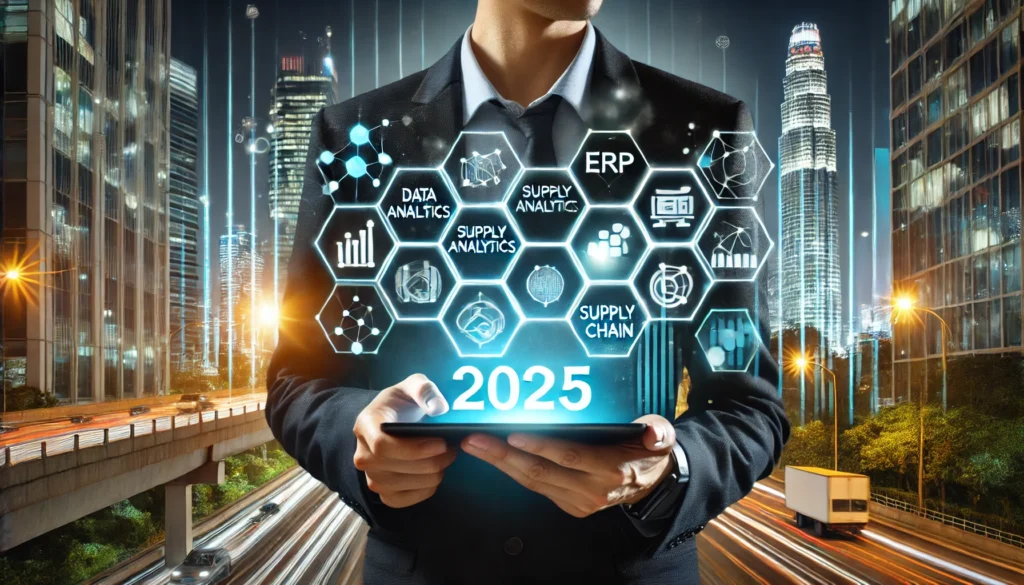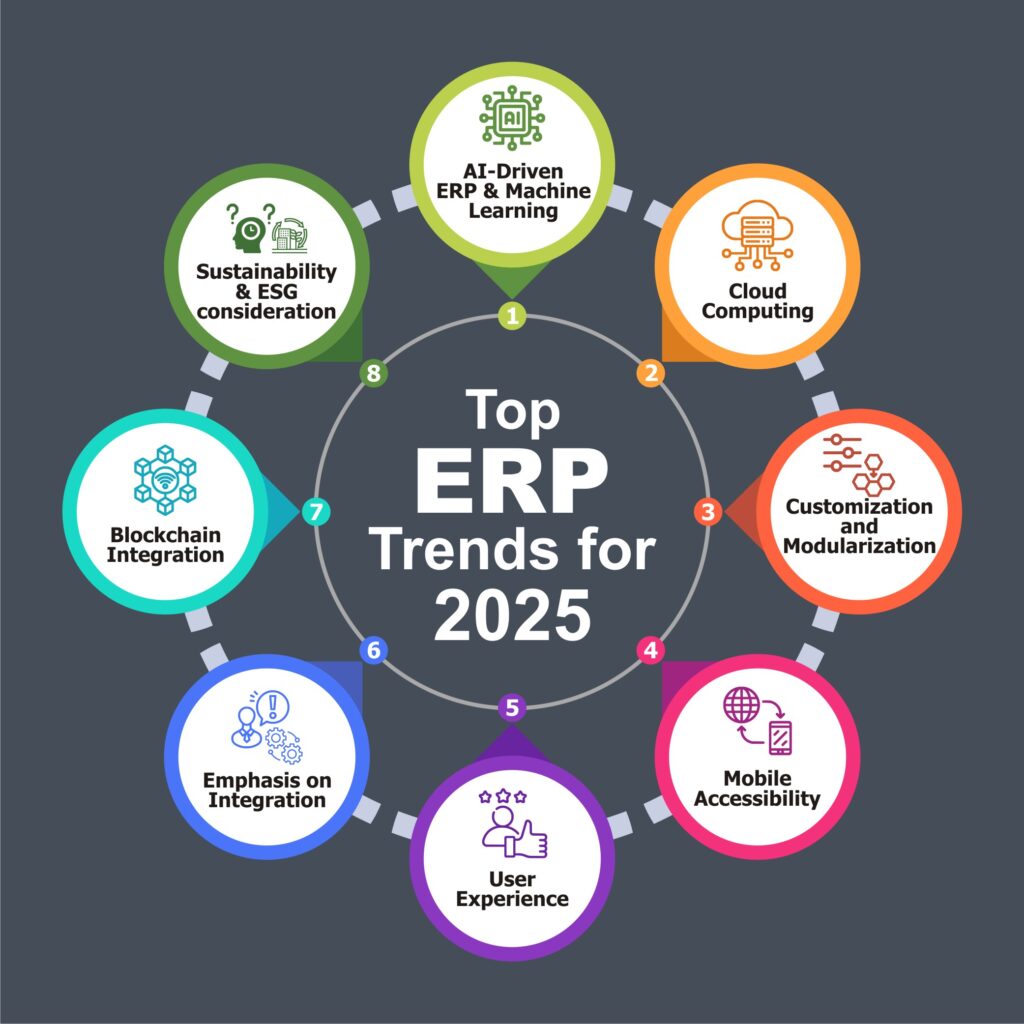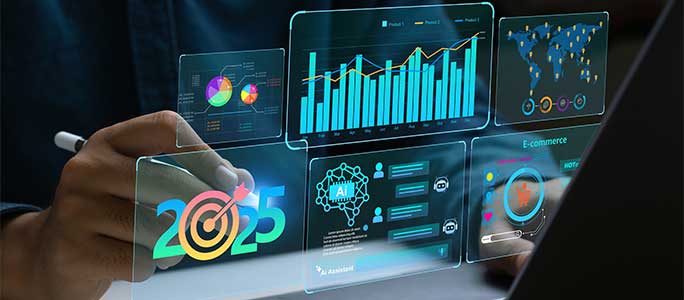
Progress is destined to happen when you stop by, analyse what’s new taking shape in the market, and prepare yourself for the future. The same theory works for the manufacturing sector as well.
We live in a dynamic environment where customer expectations and requirements evolve continuously. And for manufacturers to ensure customer satisfaction, they are required to follow certain strategies which are also known as “Trends”. These trends change every year.
Having that said, if the manufacturing market is dynamic, how can a manufacturing ERP system remain effective without adapting to necessary adjustments? To satisfy the continuously evolving needs of consumers, manufacturers want their ERP systems to be more flexible, agile, and competent, offering an increased level of convenience and productivity at their disposal.
So, this blog is there to rescue you. It is all about knowing the upcoming ERP Trends of 2025 to give you a fair idea about where the ERP industry will turn next year.
Stay tuned and keep reading!

1. AI-Driven ERP & Machine Learning –
Integration with AI & Machine Learning (ML) will empower ERP systems to become more intelligent, efficient, and adaptive to changing business needs. These tools will enable manufacturers to analyse vast amounts of data in real time and get actionable insights to optimize operations.
- AI-powered tasks reduce manual intervention and ensure streamlined execution of tasks including precise inventory management, accurate demand forecasting, and predictive maintenance.
- Machine learning algorithms strengthen decision-making by identifying trends and analysing previous years’ patterns, allowing businesses to respond proactively to market changes.
Additionally, AI & ML integrated ERPs offer personalized user experiences, smart recommendations along improved accuracy. This ultimately transforms the system into a powerful one, enhancing overall operational efficiency and productivity.
2. Cloud Computing –
Cloud computing saw incremental popularity during the past couple of years and this year also it will be on a growth trajectory. The driving force behind the technology is its ability to provide on-demand access to the business matrix.
Secondly, it offers the flexibility of scaling up or down. So, with cloud computing at work, scaling as per the need is easier and it does not involve huge infrastructural costs (hardware, software, room space, IT professionals, etc.).
ERP on cloud is available in SaaS format which provides a cheaper and more flexible alternative to its on-premises counterpart.
3. Customization and modularization –
Different businesses have diverse needs. ‘One size fits all’ strategy does not go well with ERP solutions. That is the reason businesses are inclined more toward customization. Going forward, in the year 2025, more and more businesses will move towards adopting customized products and industry-specific solutions. This way they can cater to the unique requirements of their business.
Along with it, the modular ERP trend will go high this year. With modular ERP, businesses won’t have to pay for the complete package, but they can choose to pay for only what they require. This flexibility of choice can save costs for businesses.
4. Mobile Accessibility –
In 2025, enhancing user experience will be a top priority for manufacturers while choosing their ERP solution—driven by the need for accessibility, mobility, and simplicity. As working remotely has become a need from the business expansion perspective, ERP systems will focus on offering more comprehensive mobile experiences, enabling users to access business-crucial information anytime, anywhere.
5. User experience –
User experience can be enhanced by simplifying workflows, providing customizable dashboards, and improving the structure of software. This will increase the acceptability of the software among employees and eventually reduce the training period for employees.
A simple and user-friendly interface helps to gear up the working speed of employees, thereby reducing time spent on a single task. This provides breathing room to employees between juggling tasks.
6. Emphasis on integration –
With the rise of cloud acceptability, integration using standard API will be very common. ERP software with seamless integration capabilities with third-party software will be in demand.
7. Blockchain integration –
Cybercrime and counterfeiting have become major challenges, compelling manufacturers to prioritise data security. This demand led to the development of blockchain technology—a solution developed to facilitate the creation, encryption, validation, and distribution of valuable data, ensuring its integrity always. By storing data in blocks and linking them like a chain, this technology ensures high-end security for the business data.
Looking ahead to 2025, many ERP solution providers are expected to integrate blockchain into their systems. This integration will not only enhance the faith of stakeholders but also increase the transparency of transactions.
8. Sustainability and ESG Consideration –
Environmental, Social, and Governance (ESG) considerations are gaining a lot of traction in the business world. ERP systems can help to measure, report, and improve the sustainability practices of organizations.
In 2025, ERP solutions might incorporate features that can help organizations track and optimize their environmental impact. Also, these ERP solutions can identify ways to reduce delivery routes, lower power consumption, and improve product traceability.
Concluding Thoughts:
As we move ahead in the year 2025, there is a positive sign all across the ERP software industry. Sector-wise there is a growth and technology-wise it is poised to embrace new technology. The trends clearly show that it will revolutionize how businesses operate. It will make businesses more data-driven, and more market responsive.
The trends in the ERP sector are poised to provide greater benefits in terms of time-saving, resource-saving, data monitoring, and planning for optimal utilization of available resources.
In today’s time, organizations that incorporate these trends and change their working style can stay ahead of the curve and utilize the best of their investments.
In saying so, it is worth mentioning that BatchMaster ERP is one of the new-age ERP solutions, specially made for process manufacturers.
The software provides deep data insights, offers easy integration with various isolated systems to make a cohesive ecosystem, is available on the cloud to cater to new-age requirements, and comes with a trust and experience of more than 30 years in ERP solutions. To explore more about BatchMaster ERP, contact us.





